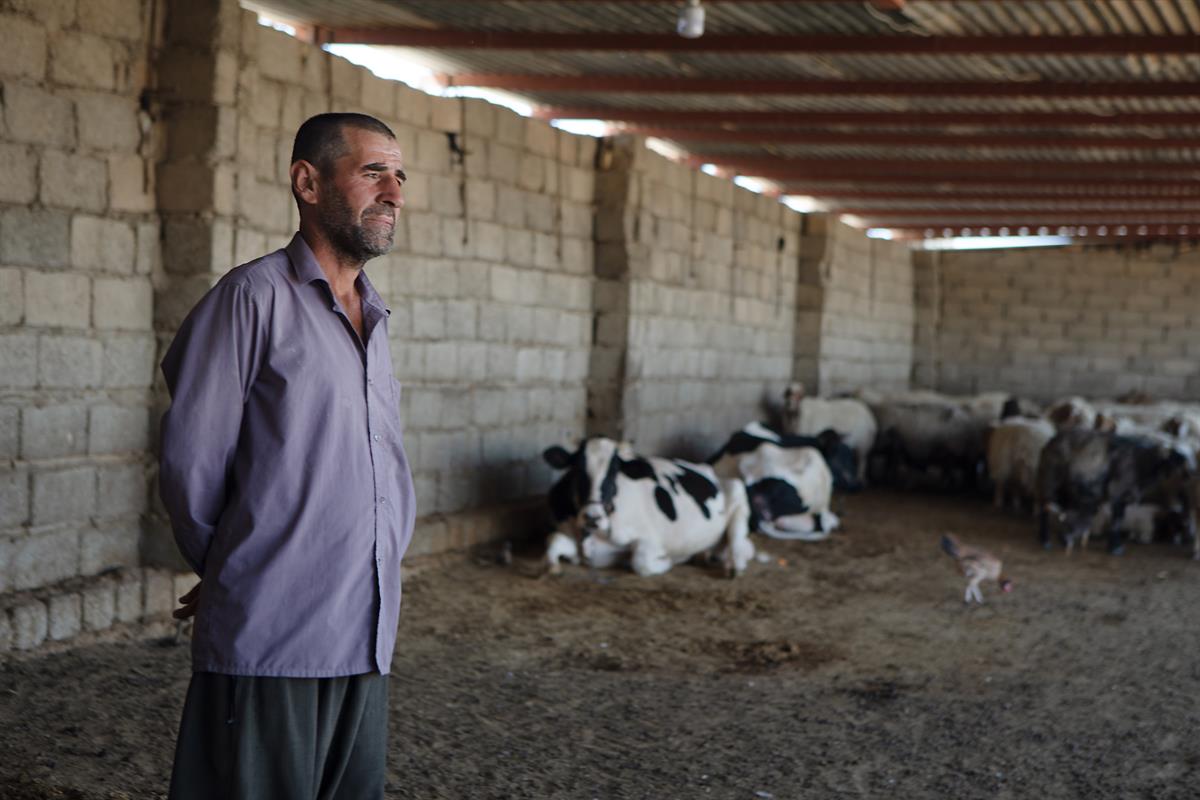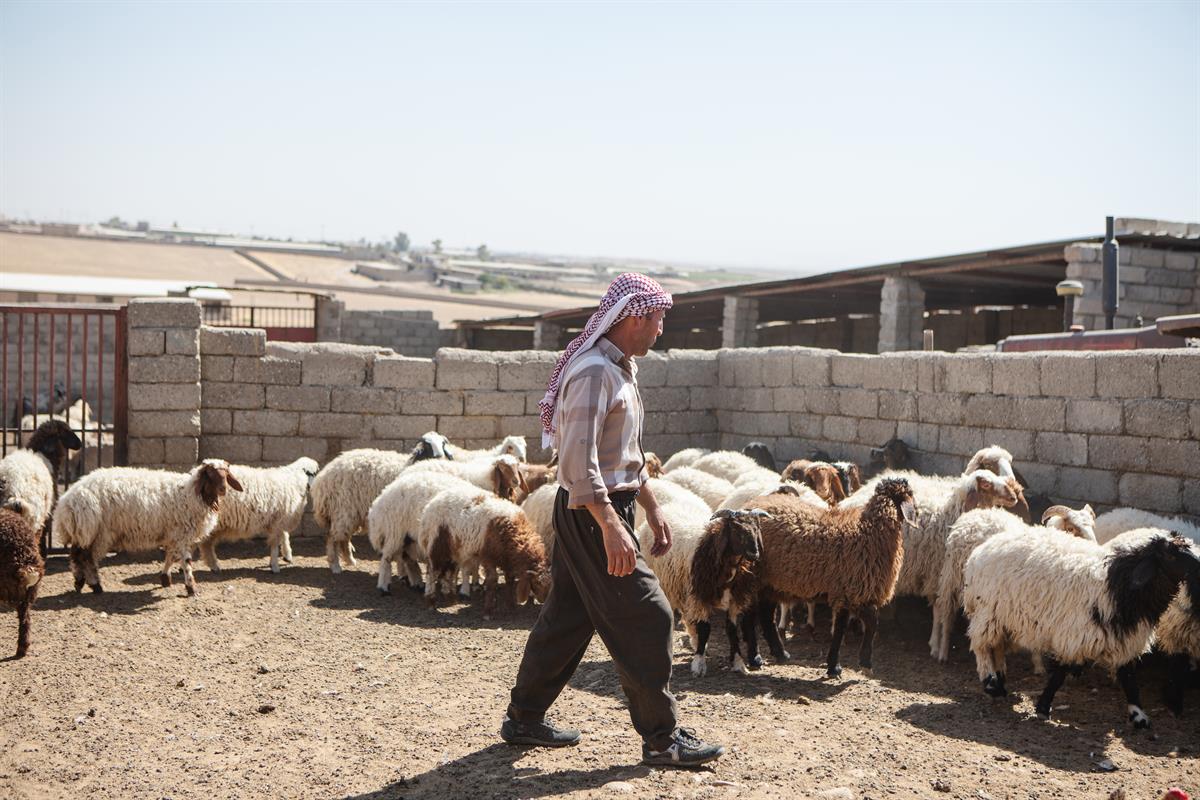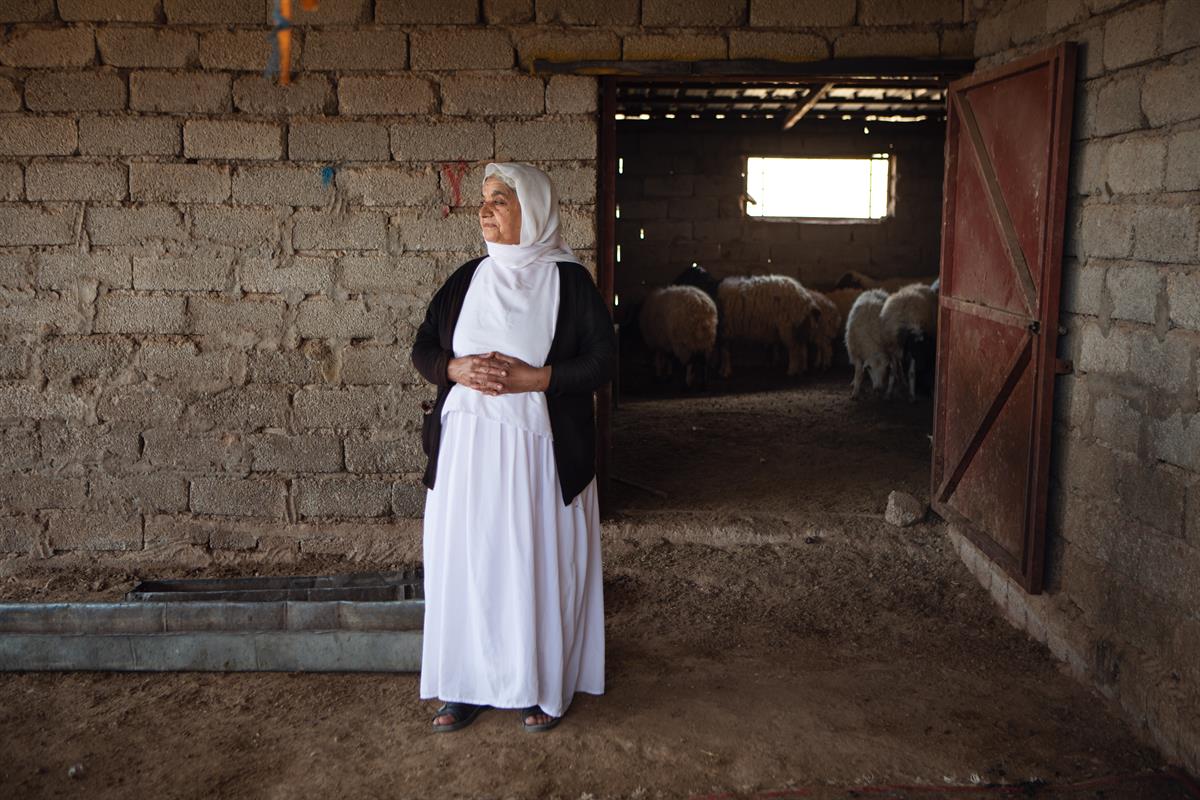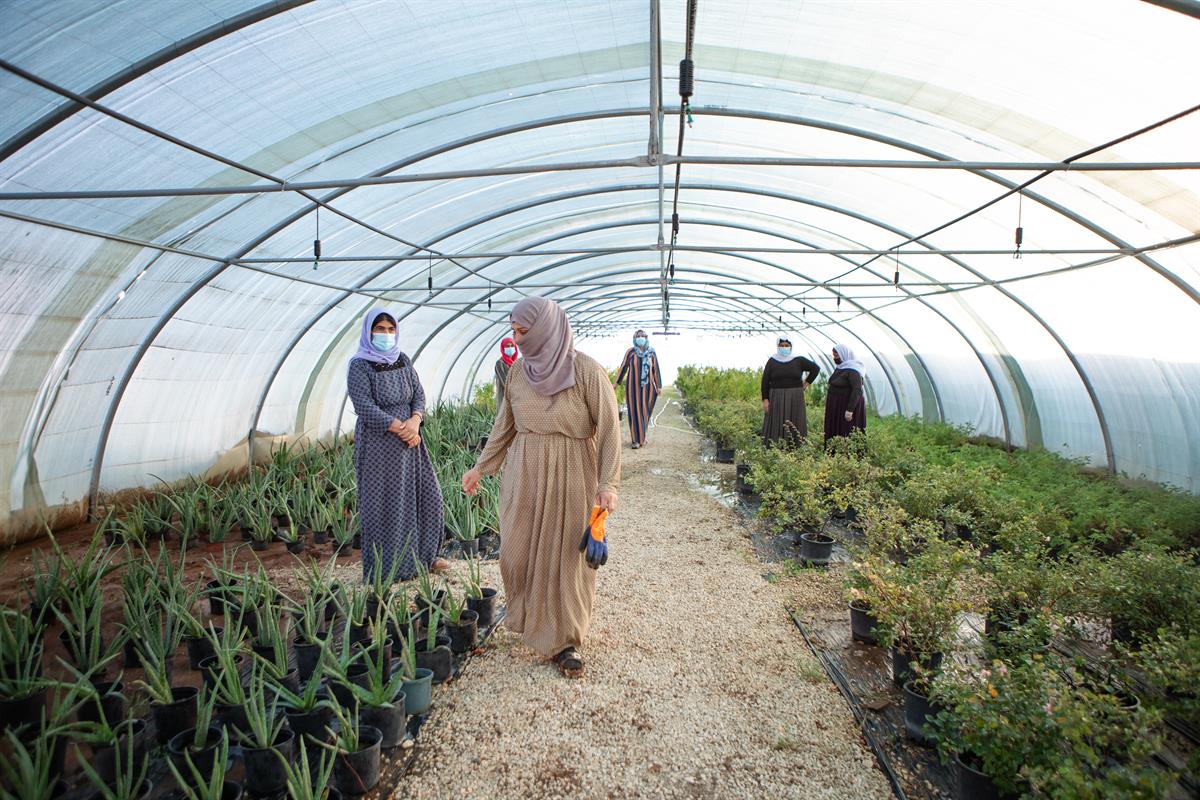In Iraq, in towns like Qaraqosh and Duhok, the citizens' lives used to be based on agriculture and livestock farming.
But after Isis arrived, the families who then managed to come back to their homes found everything destroyed.
The economic recovery
This is what happened to Nissan and Bassam Zaki Makdisi: their family farm had suffered extensive damage and the two brothers didn't think they would ever be able to get it back together.
It is to people like them that several reconstruction projects carried out by AVSI Middle East are addressed, thanks to the funds of the U.S. Department of State: Bureau of Population, Refugees, and Migration.
At the basis of these initiatives there is the objective of strengthening the socio-economic resilience of the population through various support actions: in Qaraqosh, for example, the families were accompanied on their return to their properties and supported in the restart of their agricultural activity.
They have received support ranging from building reconstruction to veterinary care for animals and, in this way, 200 farms have already been rebuilt.
This process is already positively affecting the economy of the whole district.


The video documentary
The photographer and videomaker Sara Melotti met the beneficiaries of AVSI's projects in Iraq and told their stories directly from the field.
This video documentary traces, also through the words of the country representative Lorenzo Ossoli, the different types of actions and the impact that these initiatives have in the whole area.
The Yazidi families
Many Yazidi families, who fled persecution by the Islamic State, have also found refuge in this area.
Seve Barakat Hinje Omar recalls how on August 3, 2014 she managed to escape to Mount Sinjar with her family: for 10 days they stayed there, in very difficult conditions.
Through a humanitarian corridor they then managed to get to Syria and after a month they returned to Iraq. Here, a local family hosted them and gave them half of their farm.
This is one of the actions undertaken by AVSI Middle East and PRM to foster social inclusion and collaboration of Yazidis with their host communities: a local farmer hosts a flock of 50 sheep, half of which will belong to the Yazidi family and half to the farmer.


The projects also focus on women, as is the case in the Essyan refugee camp, where 5,000 Yazidi families live.
Here, 80 women have been trained and supported to start a production of flowers, fruits and ornamental plants in greenhouses, so that they can give a dignified life to their families.
These multiple actions are part of the ASET project ("Achieving Socio-economic Stability of Returnees, Host Community and IDPs in Iraq") and "A virtuous production cycle to relaunch a city and its economic fabric for IDPs and returnees to the Nineveh Plan".